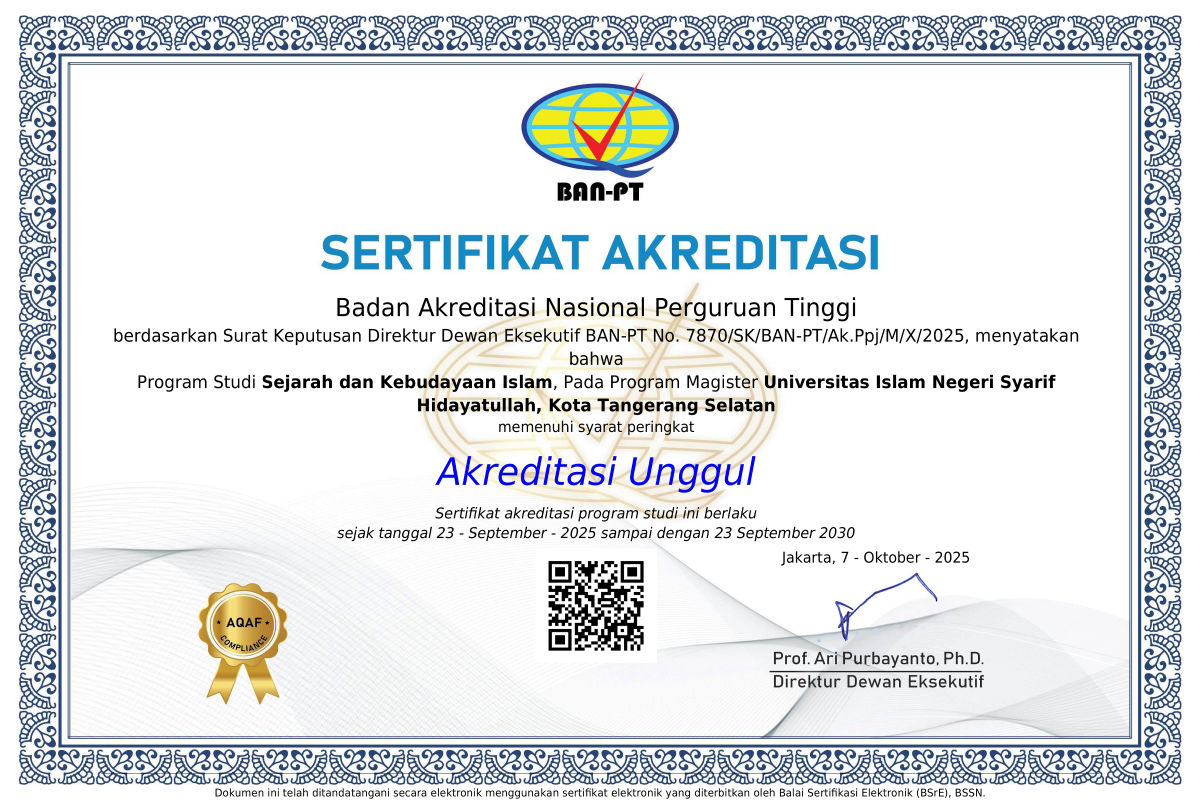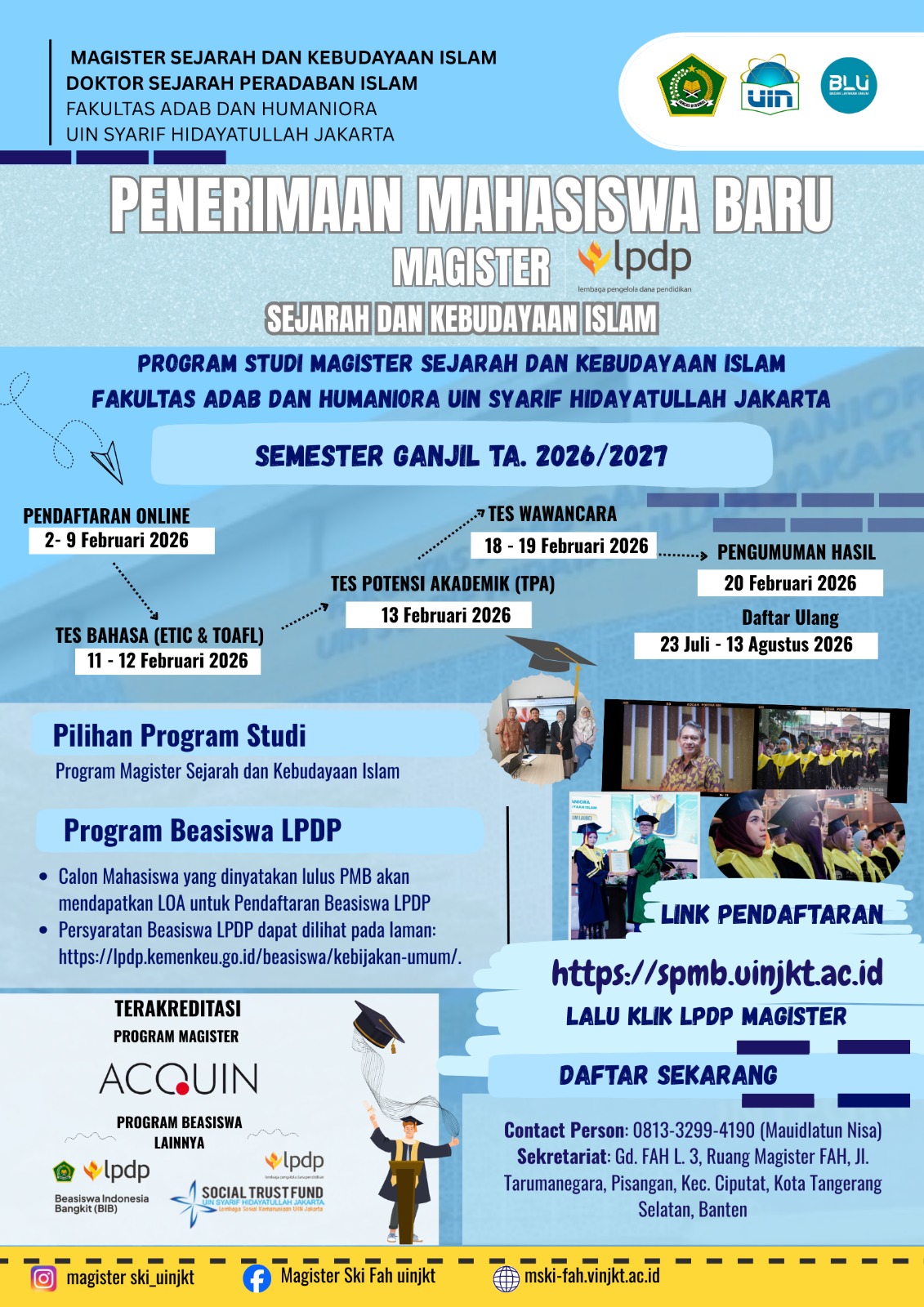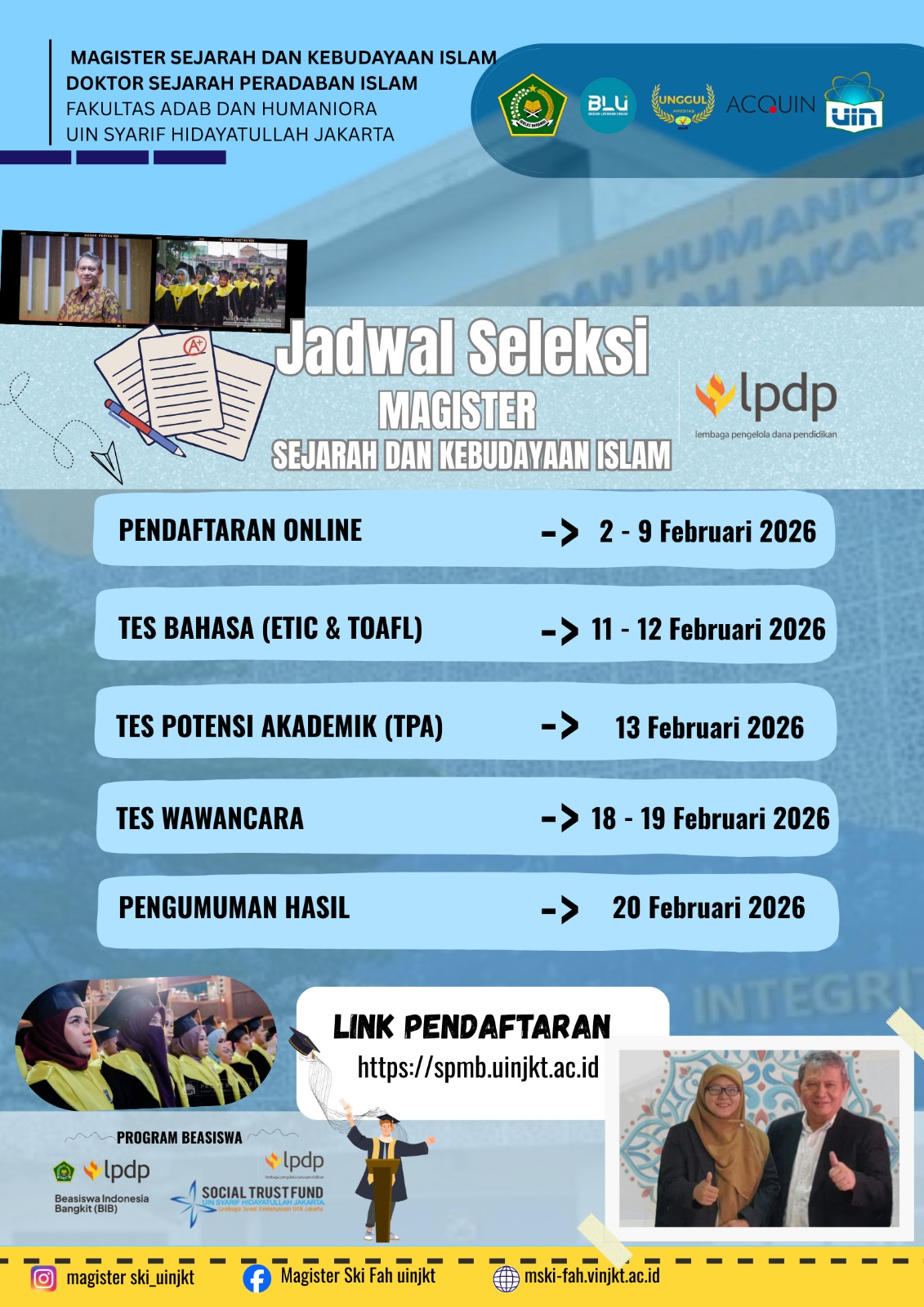
History Islamic Culture Master
History Islamic Culture Master program will become one of the leading Magister's programs in Asia in 2024 by integrating and contextualizing Islamic history and culture from an Islamic and Indonesian perspective.
- Provide education in Islamic history and culture by strengthening the research base and integrating scientific theories and methodologies from an Islamic and Indonesian perspective.
- Develop critical, contextual, and innovative studies in the field of Islamic history and culture in accordance with the dynamics that develop in society.
- Develop an academic and scientific culture based on moderate and humanistic Indonesian and universal Islam (Rahmatan Lil Alamin).
- Organize community service activities, especially in Islamic history and culture, to support the academic, professional, and scientific development needs of the community.
Programme Learning Outcome
- Able to think logically, critically, and analytically.
- Academically ethical.
- Able to reconstruct and contextualise the history in contemporary, Islamic, and Indonesian perspectives that are recognised nationally and internationally.
- Able to apply historical research methodology in analysing and solving problems in society.
- Able to identify historical issues.
- Able to present ideas and thoughts both in oral and written form in various national and international opportunities.
- Uphold Islamic values that include piety towards God, respect for human values internalisation of values and norms.
- Uphold Indonesian and community values including respect for diversity, nationalism and civic responsibility, and improving community life, co-operation, care for others, and the nation, and state based on Pancasila.
- Uphold the values of academic ethics which include honesty and academic freedom and academic autonomy.
- Able to develop theories and applications in history and Islamic studies through innovative and tested research in accordance with their fields of expertise.
- Able to explain basic concepts and theories in History.
- Able to explain various historical issues that have affected the Muslim community.
- Able to apply history as a perspective in solving problems.
Semester Course
Semester 1
Semester 2
| No | Course | CE |
|---|---|---|
| 1 | Historical Research Method | 3 |
| 2 | Philology and Southeast Asian Studies | 3 |
| 3 | Islam and Local Culture | 3 |
| 4 | Islamic Philanthropy Studies | 3 |
Semester 4
| No | Matakuliah | SKS |
|---|---|---|
| 1 | Academic Publication | 2 |
| 2 | Thesis Colloquium | 0 |
| 3 | Preliminary Thesis Exam | 2 |
| 4 | Thesis | 8 |

Prof. Dr. M. Dien Madjid
Expertise
History Islamic Culture

Prof. Dr. Jajat Burhanuddin, M. A
Expertise
History Islamic Culture

Prof. Dr. Abd. Wahid Hasyim, M. A
Expertise
Indonesian History

Dr. Parlindungan Siregar, M. A
Expertise
History Islamic Culture

Prof. Dr. Amelia Fauzia, M.A
Expertise
Indonesian Islamic History

Prof. Dr. Sudarnoto Abdul Hakim, M. A
Expertise
History Islamic Culture

Dr. Abd. Chair
Expertise
History Islamic Culture

Prof. Drs. Amirul Hadi, MA, Ph.D
Expertise
History Islamic Culture

Dr. Awalia Rahma
Expertise
History Islamic Culture

Dr. Fuad Jabali
Expertise
History Islamic Culture

Dr. Halid, M.Ag.
Expertise
The Development of Modern Thought in the Islamic World

Prof. Jajang Jahroni
Expertise
History Islamic Culture

Dr. Zakiya Darojat, M. A
Expertise
History Islamic Culture

Dr. Imas Emalia, M.Hum
Expertise
History Islamic Culture

Dr. Mauidlotun Nisa’, M.Hum
Expertise
Linguistic (Arabic Languages)
Academic Achievements
Non-Academic Achievements
Admission Criteria


Study Outcomes
Your content here
Teaching
Your content here
Study and Assessment Procedures

Graduation rates, Study opportunities
Graduation rates


Study Opportunities

Graduate Employment Information

